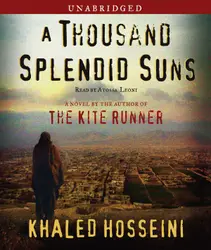' Bukhari' (The Hearth) ' written by SHYAMAL BHATTACHARYA, translated by SUBHRASANKAR DAS, is a fiction based on the lives of the Indian soldiers who were performing their duties in the untried icy and treacherous heights of Siachen, where not even a blade of grass grows. The novel subtly reveals the smoldering volcanoes that each soldier carries within himself in the unforgiving icy surroundings. The latent desires, dreams, restlessness and helplessness of the characters find an adroit expression in this novel.
More than 25 blustery, shivering years, the Indian and Pakistani armies have been fighting a "No-Win" battle on the 20,000-foot-high Siachen Glacier, the world's highest war-ground. On average, one Pakistani soldier is killed every fourth day, while one Indian soldier is killed every other day. Over 1,300 Pakistani soldiers have died on Siachen between 1984 and 1999. According to Indian estimates, this operation had cost India over Rs. 50 billion and almost 2,000 personnel casualties till 1997. Almost all of the casualties on both sides have been due to extreme weather conditions. In spite of this,
The word `Siachen` ironically means the place of wild roses. Arduous to live in, the Siachen area is beautiful to look at from the cockpit. Some of the world's tallest mountains fill the landscape, their snowy tops giving way to rivulets of white that glitter against the black and purple rock. It is a moonscape of mesmerizing pinnacles and ridges and drops. Ice formations rise a mile high. Clouds seem at arm's reach. During storms, the heavy snowfall seems as thick as long, white drapery. The wind does pinwheels, and the basic of a hard life gets that much harder.
The roots of the conflict over Siachen lie in the non-demarcations on the western side on the map beyond NJ9842. Prior to 1984 neither India nor Pakistan had any permanent presence in the area. Today, Siachen is more important as a test of diplomacy than of high-altitude battle skills. Over the years, Siachen itself has been the subject of seven major rounds of talks under various Governments ruled by various parties, negotiators have agreed that the conflict is futile -- and some have even called it lunatic. But one side or the other has always been too afr. Presently India holds two-thirds of the glacier and controls a few of the top-most heights aid of a double-cross to complete a deal.
But what is the guarantee that in future Pakistani general/president will not re-occupy Siachen with 'freedom fighters'? And in future Indian government will not ask the armed forces to take back the Soltoro ridge? USA and few western weapon manufacturing countries are only interested in selling more and more Fighter Aircrafts, Canons, other weapons and war machines to both the country. Hence, for their business shake the show must go on. If indeed we wanted to hold on to the heights, then why are we talking with each other for the last two decades to demilitarise the area? What of the four thousand soldiers who have been disabled? The cost is not only what is paid out to them in terms of disability pensions. . What of the suffering of thousands of soldiers who spend several long months at altitudes where basic survival is at stake? And finally, what about the effect on the environment?













